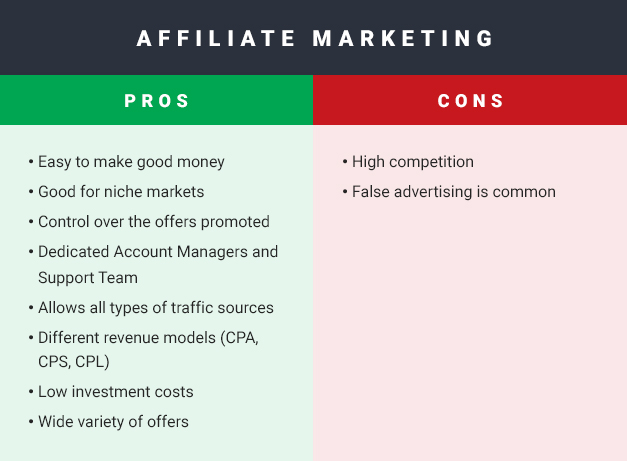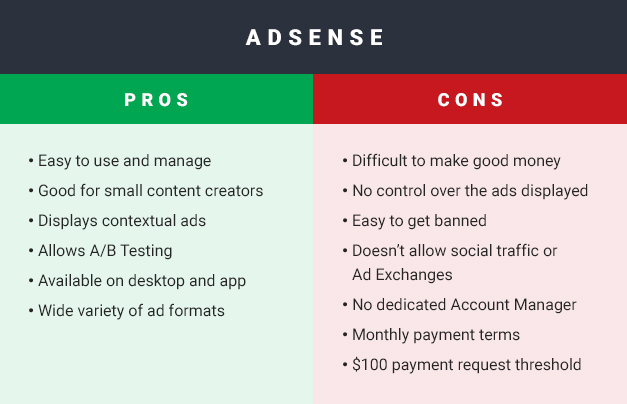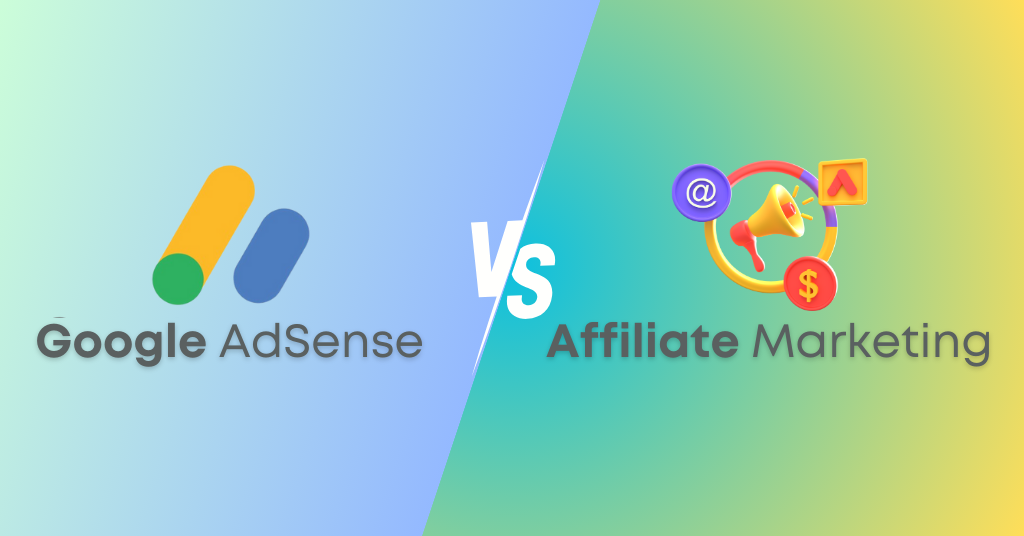In the vast ocean of digital monetization, navigating towards a sustainable and profitable strategy is crucial for any online business. Among the various methods available, Affiliate Marketing and Google AdSense shine as two of the most promising and widely adopted strategies. This detailed exploration aims to dissect each strategy thoroughly, providing a clear pathway for webmasters and content creators to decide which method aligns best with their site’s content strategy, audience engagement, and financial aspirations.
Table of Contents
In-Depth Look at Affiliate Marketing
Affiliate Marketing is a dynamic and performance-based marketing strategy where a business rewards one or more affiliates for each visitor or customer brought about by the affiliate’s own marketing efforts. This model is built on a foundation of collaboration between advertisers looking to promote their products or services and affiliates who provide the marketing muscle.

How Affiliate Marketing Functions
- Product Selection: Affiliates pick products that not only resonate with their audience but also complement their content, enhancing their credibility and sales potential.
- Diverse Promotion Channels: Whether through targeted blog posts, social media platforms, video content, or direct email marketing, affiliates employ a variety of strategies to promote their selected products.
- Commission-Based Earnings: Affiliates earn either a percentage of the sale or a fixed fee per conversion, which motivates them to refine their strategies for maximum effectiveness.
Advantages of Choosing Affiliate Marketing
- Direct Link to Effort and Profit: This direct marketing approach ensures that affiliates are rewarded in direct proportion to their success in driving sales or leads.
- Extensive Marketing Scope: Affiliates can tap into multiple markets and demographics, using their skills in SEO, content creation, and customer engagement to increase reach.
- Strategic Flexibility: Affiliates can shift strategies and change products based on performance data, market trends, and audience feedback, providing a dynamic way to optimize earnings.

Exploring Google AdSense
Google AdSense simplifies the process of earning revenue by automating the placement and optimization of ads on your website. It is a user-friendly program that allows publishers to earn money by displaying targeted ads next to their online content.
Functioning of Google AdSense
- Simple Integration: By embedding a small piece of code, website owners can start displaying ads that are contextually aligned with their content or tailored to the audience’s browsing preferences.
- Automated Ad Optimization: AdSense uses a combination of algorithms to place the highest paying ads, taking into account the context of the page and the potential revenue each ad could generate.
- Passive Income Generation: With AdSense, earnings accrue with each click and impression, offering a steady revenue stream that does not require active involvement.
Benefits of Using Google AdSense
- Ease of Use: With no need for active management, AdSense provides a nearly hands-off approach to monetizing your website.
- Reliable Earnings: While payouts per click may vary, the overall earning potential is balanced by high levels of traffic and effective placement.
- Broad Advertiser Base: Google’s vast network of advertisers means a wide array of ads are available to suit any content type, enhancing the likelihood of clicks and earnings.

Comparative Analysis: Affiliate Marketing vs Google AdSense
The choice between these two depends heavily on the specifics of your website and its audience.
Audience Suitability
- Affiliate Marketing: Best for sites with a dedicated, engaged audience that trusts the site owner’s expertise and recommendations. Ideal for niche markets where personalized content and product endorsements can lead to high conversion rates.
- Google AdSense: Suited for sites with high traffic levels across various topics. It works well in environments where direct interaction with every piece of content is less feasible.
Control Over Advertising
- Affiliate Marketers: Enjoy complete control over which products they promote, allowing them to strategically align with their audience’s preferences and maintain authenticity.
- AdSense Publishers: Have less direct control over the specific ads displayed but can influence the general categories of ads that appear on their site.
Potential Revenue Outcomes
- Affiliate Marketing: Potentially higher earnings per transaction, dependent on effective targeting and the ability to persuade. Best for those who can leverage personal authority and audience trust.
- Google AdSense: Offers a more consistent revenue flow, generally based on the volume of traffic and less reliant on the high-engagement sales tactics necessary for affiliate marketing.
Implementation Simplicity
- Affiliate Marketing: Demands a proactive approach in selecting products, crafting promotional content, and engaging with the audience. Requires continuous strategic adjustment based on performance analytics.
- Google AdSense: Features a straightforward setup process—simply insert the code and let Google handle the rest. Ideal for those who prefer a set-and-forget approach to website monetization.
This content is sourced from Youtube: View more.
Strategic Decision-Making: Which is Right for Your Site?
Deciding between Affiliate Marketing and Google AdSense should be a strategic choice based on your site’s content depth, visitor engagement, and your personal involvement in monetization processes. If your website has a strong niche focus and a loyal audience, affiliate marketing can offer lucrative rewards for your direct efforts. Conversely, if you operate a high-traffic, multi-topic site, Google AdSense provides a reliable, passive revenue stream with minimal oversight required.
Conclusion
Both Affiliate Marketing and Google AdSense are powerful tools for monetizing online content. By thoroughly understanding each option and aligning them with your website’s specific needs and your operational style, you can significantly enhance your online revenue. The right choice depends on your site’s unique characteristics and your personal goals in shaping the visitor experience and maximizing income.
FAQs
What is the main difference between Affiliate Marketing and Google AdSense?
Affiliate Marketing is a performance-based model where affiliates earn a commission for promoting products and driving sales or leads. Google AdSense, on the other hand, allows publishers to earn money by placing ads on their site that generate revenue through clicks and impressions. The choice between the two depends on your site’s content, traffic, and engagement level.
How do I start with Affiliate Marketing if I have a small website?
Starting with Affiliate Marketing involves selecting a niche that aligns with your content and audience interests. Begin by joining affiliate networks that offer products in your niche, and use your website and social media to promote these products effectively. Focus on building content that adds value to your audience to increase engagement and conversion rates.
Which generates more revenue: Affiliate Marketing or Google AdSense?
The potential revenue from Affiliate Marketing or Google AdSense can vary greatly depending on several factors. Affiliate Marketing might yield higher revenue per transaction if your marketing and audience engagement are strong. In contrast, Google AdSense could provide a more consistent income stream based on overall traffic volume, without requiring high engagement with every piece of content.
Becoming a publisher with Bluefriday is straightforward. Begin displaying ads and earning revenue immediately.






